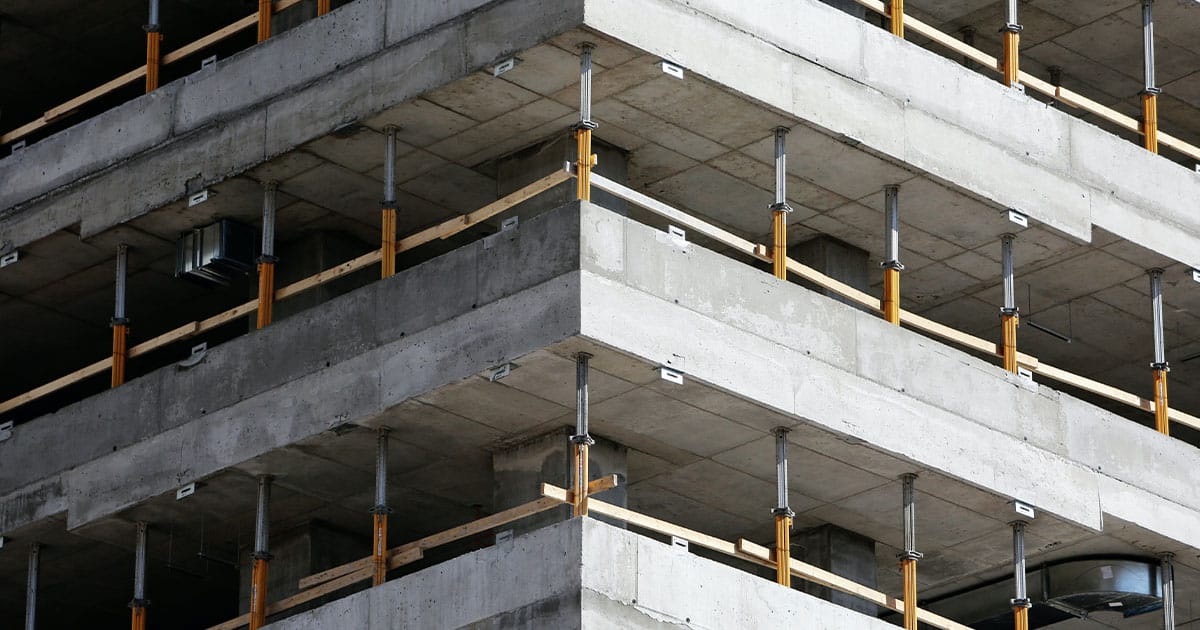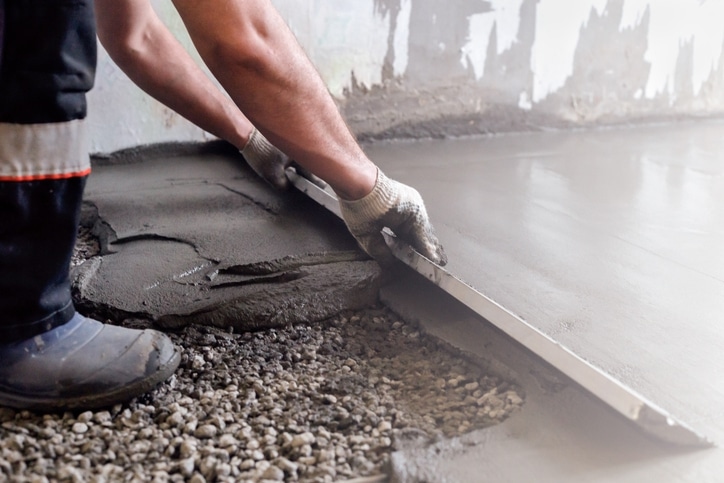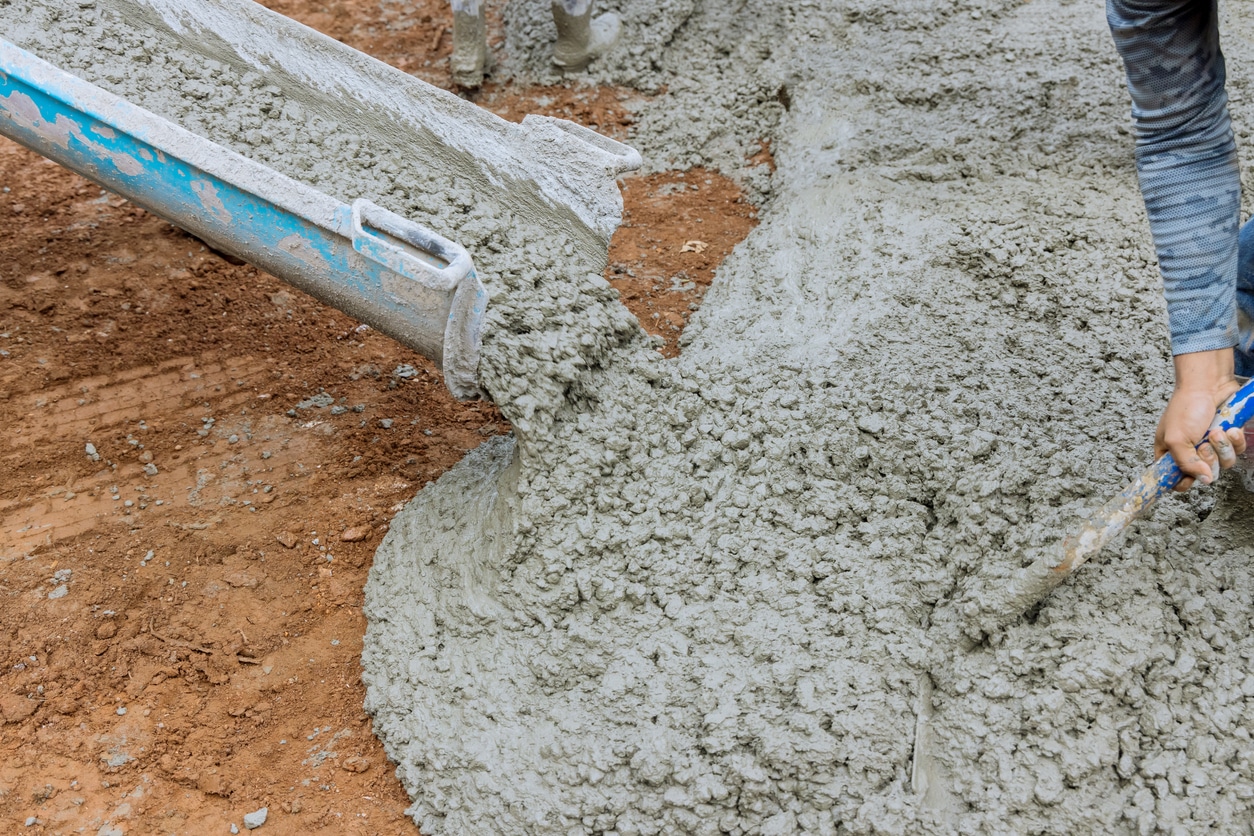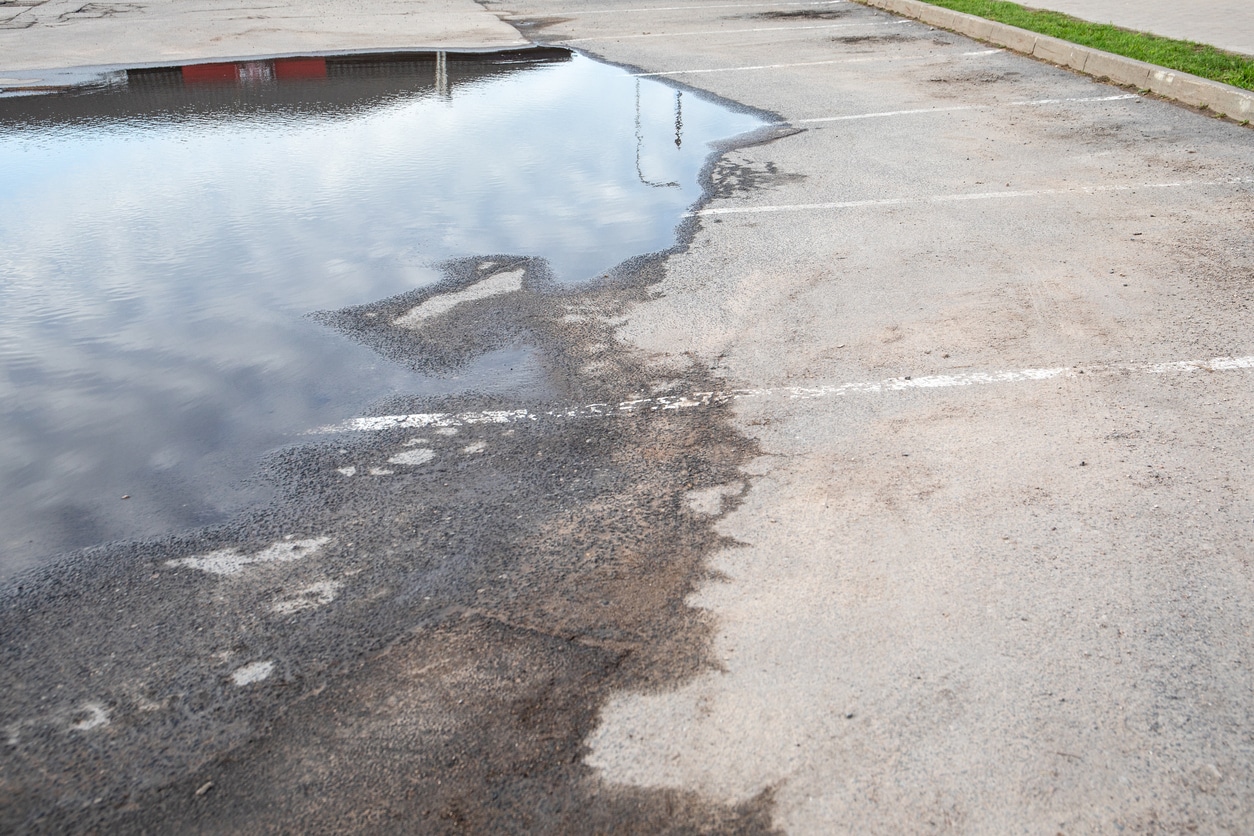If you're undertaking a retail or other commercial construction project, it's important to understand the…

Frequently Asked Questions about Concrete
Concrete is the most widely used construction material in the world. Concrete has many advantages over other materials – strength, durability, versatility, and energy efficiency, to name a few. Whether you’re a builder or homeowner, it pays to know the costs and advantages of using concrete. K&E Flatwork gives the answers to common concrete questions you have.
What is Concrete?
Concrete is a mixture of Portland cement, water, and gravel. When cement and water are mixed, they make a paste. At the same time, gravel allows the whole mixture to harden, thanks to the cement in it. The final product is durable, high-quality, and strong concrete.
How is Concrete Strength Managed?
Cement is the key component that influences the strength and power of the concrete. More specifically, the water and cement ratio is the critical factor responsible for the concrete’s potency and impact. The more water is added to the mixture, the weaker the final concrete consistency will be. Likewise, the more cement the mixture has, the sturdier it will be, but water is needed to nail that balance.
Where is Concrete Used the Most?
Concrete is used in various construction projects, such as repairing and replacing curbs, roads, sidewalks, parking lots, floors, handicap-accessible ramps, and hardscaping. It can also be instrumental in mending and decorating garden patios, garage floors, and even sports fields.
Why is Concrete Used More than Other Construction Materials?
Concrete is more often used than other materials thanks to its main features:
- Concrete hardens at ambient temperature – With cement being a low-temperature bonded material, concrete can be used in different ambient weather conditions.
- Concrete is economical – Low-cost production and the wide availability of cement make the material superbly economical. Other ingredients, water, and aggregates are available and ready to use at a low cost.
- Concrete can be cast into shape – When ready to use, concrete takes a liquid form and can be poured into various forms or configurations to get the desired sizes and shapes.
- Energy efficiency – Steel production requires three to ten times more energy than concrete, making the latter a more energy-efficient option.
- Water-resistant – Compared to wood and steel, concrete can resist water to some extent.
- Temperature-resistant – Concrete can withstand high temperatures more than wood and steel, thanks to calcium silicate hydrate. It can even withstand fire for two to six hours.
- Ability to consume and recycle waste – Fly ash, waste glass, or slag, can be used in concrete as industrial waste.
- Low maintenance required – Concrete does not require additional weather protection, and the coating is replaced routinely and efficiently.
- Multi-mode application – Concrete can be poured, pumped, sprayed, or hand applied.
Do I Need to Protect Concrete Surfaces?
Concrete is generally resistant to many conditions and external factors. However, some aggressive materials like acids have a deteriorating effect on concrete. The first protective measure against aggressive chemicals is to use only high-quality concrete.
Quality, high-resistant concrete is achieved when the water-cement ratio is low, sulfate-resistant cement is used, and suitable aggregates are chosen.
Sealers and coatings in large chemical formulations can protect concrete from environmental effects.
How is Concrete Paving Done?
Slipform and fixed form are the two types of concrete paving. Slipform paving involves applying a layer of fresh concrete in front of a special machine. The machine moves and spreads the concrete across the desired area.
In fixed form paving, metal forms are placed on a solid foundation and filled with concrete. A machine is used to shape and consolidate the concrete.
Why Does Concrete Need Repair or Replacement?
Multiple factors impact the concrete and cause potential damage. It is necessary to identify the correct cause of the damage so you can treat it appropriately.
The setting is the most common issue which occurs when the land covered with concrete shrinks. Another issue is poor preparation before the concrete is laid – it has to be compacted well. The freeze-thaw effect is one of the leading causes of damage and occurs when concrete absorbs the water. The water then freezes, making the concrete expand.
Why Do Concrete Driveways Need Repair and Replacement?
Concrete is used on driveways because of its extreme durability, versatility, and lifespan. Yet, driveways endure heavy traffic and numerous hits. On average, the material lasts up to 40 years, after which it should be replaced. It can become a safety hazard if not maintained properly and repaired when damaged.
What is the Measure Used for Concrete?
A cubic yard is used as a measure for concrete. One cubic yard of standard concrete weighs about 4,000 pounds. To ensure superior results, the concrete has to fulfill quality standards that comply with the ACI and ASTM test methods.
Can Damaged Concrete be Repaired?
Yes. Concrete is economical and one of the most durable and versatile materials. It can last up to 100 years with proper treatment. Still, water leaks and weather conditions like tornadoes can damage the material. A great thing about concrete is that you can repair or replace the damaged areas without disturbing the overall application.
Can I Repair a Damaged Concrete Parking Lot?
Yes, you can repair a damaged concrete parking lot. Parking lots require different formulations and reinforcement depending on the location of the lots – outdoors or indoors. This can also affect the amount of damage you’ll potentially face, with outdoor lots being more exposed.
For best results, it is recommended to hire a professional to mend the damage efficiently.
Can Parking Lots Used for Trucks Be Made of Concrete?
Yes, concrete is ideal for parking lots for trucks and regular vehicles. Although concrete may be more expensive than pavers or gravel, it offers long-term value and low-hassle maintenance. For truck parking lots, concrete is a more durable choice than asphalt. It is also versatile, appealing, and weather-resistant. More importantly, concrete has high compressive strength when reinforced with steel and boasts a low water-cement ratio.
How Long Does Concrete Take to Cure?
While it mainly depends on the provider, applied concrete can be used six hours after application. Some applications will require the user to wait 21 days before the new concrete can be used.
K&E Flatwork: More Than a Concrete Service Provider
At K&E Flatwork, we offer the finest pre-construction-to-project concrete services across Kansas City. We have over a decade of experience and are confident in delivering high-quality concrete solutions that fit your needs, timeframe, and budget.
We deliver customer service that guarantees hassle-free project coordination. Contact us today to learn more about our solutions, get answers to all your concrete questions, and schedule an assessment with one of our professionals.



